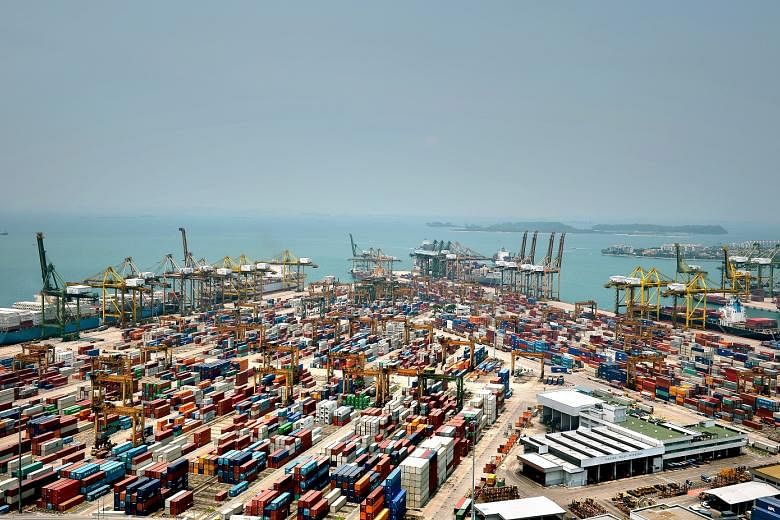SINGAPORE - The International Maritime Centre (IMC) 2030 Advisory Committee has laid out its vision for Singapore in its next phase of growth: to become the global maritime hub for connectivity, innovation and talent.
Its recommendations were unveiled on Friday evening at the Singapore Shipping Association's 32nd anniversary gala dinner at Marina Bay Sands.
The committee, comprising 22 business leaders and experts, was set up by the Maritime and Port Authority of Singapore (MPA) in August last year to chart the direction of Singapore as a maritime hub.
It reaffirmed that Singapore's global hub port and IMC ecosystem remain complementing twin engines of growth for Maritime Singapore, said MPA in a statement.
"Going forward, Singapore's IMC can benefit from the growth of Asia and other emerging markets, new industry opportunities and technological developments.
The IMC 2030 Advisory Committee noted that Singapore should further widen and deepen its IMC cluster by harnessing both physical and non-physical trade flows.
To reinforce the network effects, Singapore will need to strengthen inter-linkages within the Singapore IMC cluster by further entrenching maritime players in Singapore and broadening the depth and range of activities, including possible co-location of existing and new maritime-related ones.
It will also have to strengthen links with adjacent industries such as commodity trading, logistics and e-commerce, as well as with other complementary international maritime clusters through stronger business ties, collaborations on research and development, training and education, and development of new international standards and regulations.
Innovation should also remain a key focus of Singapore's IMC, said the committee. This will enable the development of future capabilities and solutions that build on emerging technologies, such as autonomous systems, robotics, data analytics and artificial intelligence.
At the same time, talent remains a critical success factor, and Maritime Singapore will need to continue building a future-ready workforce with relevant skills and a global mindset that anticipates the future needs of the industry, it said.
Committee chair Andreas Sohmen-Pao said: "The successful growth of Singapore's maritime sector over the past decade has been founded on a clear strategy, effective implementation, and strong alignment between the Government and the maritime community. These factors are even more relevant at a time where the outlook is less certain and where the emphasis is shifting from physical to virtual flows.
"Connectivity, innovation and talent are seen as the best ways to remain responsive to changing conditions, and the report provides action-oriented recommendations to be ready for future challenges and opportunities."
Senior Minister of State for Transport Lam Pin Min, who was at the dinner, noted the report is a call for Maritime Singapore to take bold steps to embrace technology and innovation, invest in developing people and seek new ventures in a more connected world.
Dr Lam also said the Government will study the recommendations and work with the industry to implement them.


